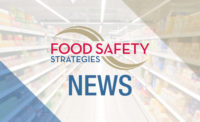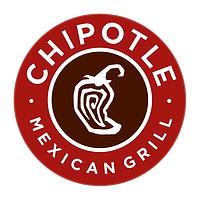Eartbound Farm Sr. VP and Food Safety Magazine Editorial Advisory Board member Will Daniels makes news at the Food Safety Summit.
BALTIMORE — Food safety should not be a competitive advantage as far as Will Daniels is concerned, and the senior vice president of Earthbound Farm backed that up by announcing the company will open its wash line and facilities to give competitors information on beefing up their own food safety programs.
Daniels made the announcement during his speech at the Food Safety Summit May 1. Event organizers said about 1,500 people registered for the three-day event. He said he plans to begin finalizing the details of the Earthbound Farm facility tours as soon as he returns to California.
Before revealing the plans to share with competitors the food safety procedures in place at the San Juan Bautista, Calif.-based company, Daniels outlined what Earthbound Farm went through during the 2006 spinach-related E. coli outbreak.
“As one whose food injured more than 200 people and killed three, I am here to tell you enough is enough,” Daniels said.
He described the weeks of investigations by the Food and Drug Administration, Federal Bureau of Investigation, state agencies and other entities and the following deluge of food safety research projects funded by various entities as “a classic exercise of egos” that was inefficient and expensive beyond necessity.
Daniels said he was shocked that investigators assumed guilt before gathering any information and equally shocked at some legal advice to provide no more documentation or information than was asked for.
“The FDA was on site for a week before the FBI showed up,” Daniels said. “They (the FBI) came in and wanted the same information we had already given the FDA.”
Daniels said he was stunned to learn that government agencies don’t share information during such situations. When attorneys told staff to not allow regulators to take away any documentation he was again shocked.
“As a regulator myself I thought, ‘Wow. That’s not going to be very helpful,’ ” Daniels said.
All of the issues Daniels discussed had a common denominator — money.
Government agencies had to prove their worth by asking their own questions. After the fact, academics competed for grant money to conduct overlapping research. Food producers were concerned safety procedures would be too costly. Attorneys on all sides protected their clients’ interests while collecting legal fees.
Retailers still wanted rock-bottom prices to attract consumers, Daniels said.
We often lose business to those with lesser programs because of cost,” Daniels said.
But he has seen a paradigm shift since 2006.
Daniels said part of the shift is because chief executive officers have become convinced food safety expenses have bottom line rewards. Transparency is beginning to increase, on the government side as well as industry.
“We need to stop relying on liability insurance to protect us and instead take action so we don’t need to rely on it,” Daniels said.
He said academia and non-governmental organizations such as produce associations need to be more organized with their research projects and funding to avoid redundancies.
“And I believe government has recognized the need to change and to be on the same page in their regional offices as they are in Washington D.C.,” Daniels said.


